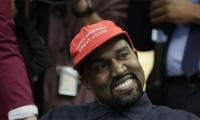In great Greek tragedies, heroes often suffer from a tragic flaw or fatal flaw of character leading to their eventual downfall. This trait could be a lack of self-knowledge, lack of judgment, and even hubris.
The Greek word for tragic flaw is ‘Hamartia’, which means ‘to err’. It was Aristotle who introduced the literary term first in his book ‘Poetics’, arguing that it is an error of judgment on the part of a hero that brings his downfall.
The fatal flaw in Shakespeare’s ‘Hamlet’ is the crippling indecisiveness of its hero, one of the most fascinating characters in world literature and the most popular one created by the Bard.
To be, or not to be – that is the question;/Whether ’tis nobler in the mind to suffer The slings and arrows of outrageous fortune/Or to take arms against a sea of troubles Lal Krishna Advani reminds me these days of those tragic her oes with a fatal flaw. The patriarch, who co-founded the BJP along with Atal Behari Vajpayee and others and is considered the sole architect of the party’s metamorphosis from a two-member outfit into India’s party of governance, must be ruing his fatal error of judgement and the day he took a little-known RSS pracharak from Gujarat under his wings as his protégé.
Not only did Advani groom and mentor Narendra Modi for years, it was he who rescued him when in the aftermath of the horrific 2002 pogrom that claimed around 3,000 lives, Vajpayee, under pressure from allies, wanted to sack him as the Gujarat chief minister.
Modi survived 2002 with the blessings of Advani, and ruled Gujarat for 12 years, acquiring popularity in the party rank and file and among Hindus with his hard-line image. In 2014, he went on to win the BJP nomination as the prime-ministerial candidate, elbowing out rivals like Sushma Swaraj, Rajnath Singh, Arun Jaitley, and his own mentor, 92-year-old Advani.
After decades of waiting in the wings under the shadow of a more charismatic Vajpayee, Advani finally had a shot at the top job after the former prime minister retired. However, first the Congress-led UPA and then his own protégé from Gujarat stole the opportunity from right under his nose. Today, after a lifetime of hard work in the trenches of the Parivar and building the BJP from a scratch, including generations of leaders like Modi, Advani has not only been unceremoniously dumped by the party as a parliamentary candidate, he has had to face the ultimate indignity of being intimated about the decision through a junior functionary.
Both the high-flying prime minister and the man he imported from Gujarat as the BJP president, Amit Shah, have been too busy to spare some time for the grand old man. (After some negative media coverage, Shah has since called on the patriarch, ostensibly to present him with a copy of the new manifesto!)
In a way, as in those great tragedies, our hero plotted his own fall by resolutely throwing his weight behind the then Gujarat chief minister. Vajpayee rightly blamed Modi for not upholding his ‘Raj Dharma’ and the 2002 carnage of Muslims for the stunning defeat of the BJP in 2004 after the self-congratulatory ‘India Shining’ campaign.
It is almost tempting to sympathise with Advani over his stunning fall from grace and the ultimate humiliation in the party that he founded and built and at the hands of men and women he personally groomed and mentored during long career as one of India’s top politicians. But considering the singular role Advani has played – along with Vajpayee and other leading lights of the orange brigade – in introducing the poison of hate and religious discord in Indian politics and the unmaking of Indian democracy, any twinge of regret over his fate would be misplaced.
If the BJP has grown from an obscure ring-wing outfit on the margins of Indian politics into the largest political party in the world with unprecedented financial resources at its disposal, the credit goes to Advani and his infamous Somnath to Ayodhya rath yatra in 1990. Given the emotional role faith has always played in the lives of incredibly devout Indians, the call to build a temple at the site of Babri Masjid and the ostensible birthplace of Lord Ram was indeed a masterstroke to counter the then prime minister Vishwanath Pratap Singh’s gambit of granting a quota to multiple backward Hindu communities.
The Ayodhya yatra left behind a trail of death and destruction across the country. It eventually led to the destruction of Babri Masjid in 1992 and catastrophic anti-Muslim riots across the country, which killed around 3,000 people. However, it helped unite the upper caste Hindus behind the BJP, instantaneously swelling its ranks like never before, and catapulting the party to the centre-stage of Indian politics.
Today, the BJP not just rules from Delhi with a brute strength in parliament, it also has governments in 16 states in the length and breadth of the country. It was riding on the success of Advani and his Ayodhya campaign that the BJP under Modi swept to power in 2014 and may very well be voted back in the elections that began yesterday. As Ruchir Joshi puts it in ‘The Hindu’, “they (BJP) sensed that a disaffected, jobless mass of male youth, at least in central and north India, was a tinder keg that could be ignited with the touchpaper of communalism and the targeting of the minority communities as the ‘enemy’. Long-honed instincts told them their pseudo-Hinduism had a strong chance of defeating the Congress’s pseudo-secularism, at least in the so-called cow belt. Most importantly, these men knew fully [sic] well that their ‘rath-yatras’ and their carting of ‘consecrated’ bricks to Ayodhya would lead to a bloodbath. Not only did they know it – the very success of their gamble depended on violence ensuing, on large parts of the country tearing along communal lines. After the demolition of the Babri Masjid this is exactly what happened.”
Many Indians today, born after December 6, 1992 and the madness of those deeply divisive and unsettling years, would not know what it was like to live in those days of strife and hate and perpetual VHP-Bajrang Dal yatras, shilaniyas and religious riots. Thousands of innocents died and a whole generation grew up with the scars of that toxic conflict. The BJP and its politics of hate forever demonising Muslims as the hated Other have changed the very nature and character of Indian politics – nay, Indian society – forever.
This is the proud legacy of Advani, Vajpayee, Joshi and all the great men who led the BJP for decades and plotted the unmaking of India, all the while paying obeisance to the fine secular and democratic constitution of India that promises inclusive polity and equality of opportunity to all communities and groups.
The denial of a mere party ticket is no retribution for what Advani and company visited on India, wreaking havoc with its political and democratic institutions and saffronising virtually every sphere of activity. There is little consolation either over the fact that Advani has been upstaged by a protégé who is certainly turning out to be more mendacious and crafty than his mentor in every way possible.
This is perhaps what you may call the ultimate poetic justice. But it’s little gratifying considering Indian courts are yet to deliver justice in the man’s case, a man known to constantly rub his hands, as if trying to clear the bloodstains on his hands. A la Lady Macbeth: “Out, damned spot! Out, I say!” in the great Shakespearean tragedy.
The writer is an independent writer and former editor.
Email: Aijaz.syed@hotmail.com
Twitter: @AijazZaka
People stand in line up as election officials check their ballot papers during voting general election at a polling...
Women show their voter identity cards as they stand in a queue before casting their votes in Agartala. — PTIThe 18th...
Former prime minister Imran Khan. — Instagram/ imrankhan.ptiAn old saying has it that “when you dance with the...
Kashmiris in Indian illegally occupied Kashmir protesting against the Indian occupation as the forces of India looked...
A representational image showing residents walking at a wholesale market in Karachi. — AFP/FileOnce again there is...
A representational image showing late Pakistani human rights activist and Supreme Court lawyer Asma Jahangir. —...







